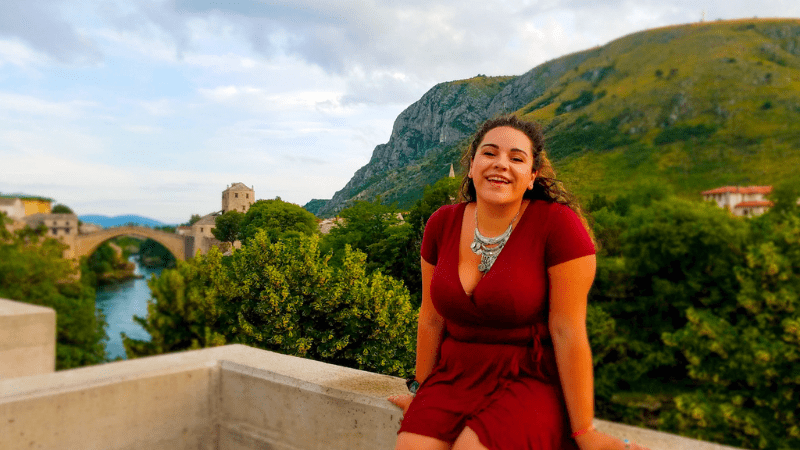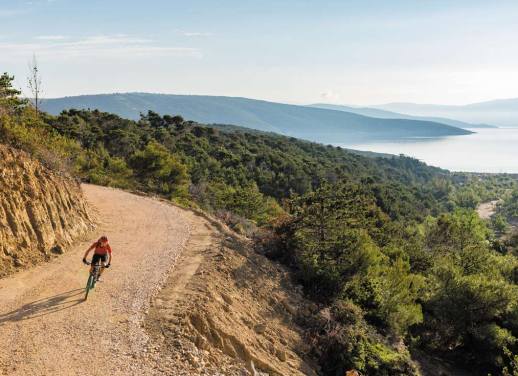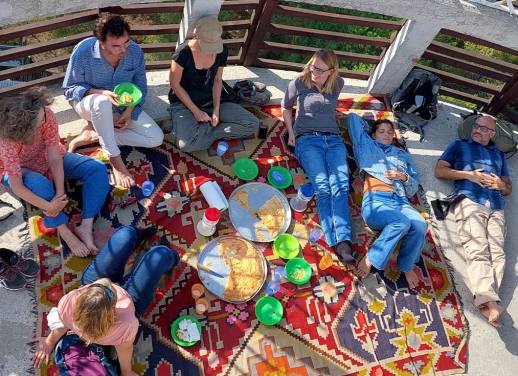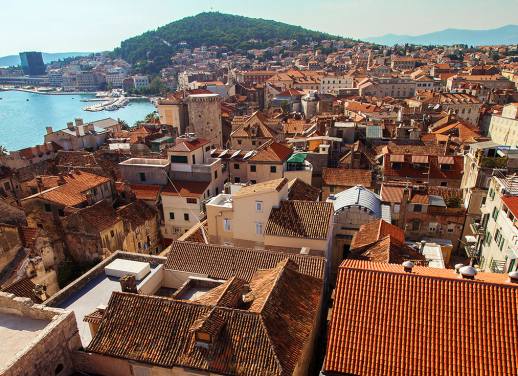The Balkans is a beautiful – but complicated – part of the world. Blogger Chantel Loura (aka Voyaging Vagabond) shares her experiences as an LGBTQ+ traveller, what to expect and how to get the most out of your adventures.
I started travelling to the Balkans in 2015 and have been all over; Albania, Bosnia and Herzegovina, Croatia, North Macedonia, Montenegro, Serbia and Kosovo. I’m never able to stay away for too long. The pristine coastline and less frequented natural wonders always call me back.
From island hopping in Croatia, to waterfall chasing in Bosnia and Herzegovina, sampling raki in Albania, sunset hikes in Montenegro, dancing all night in Serbia and boating through canyons in North Macedonia, the memories I carry from this region are endless. Here, mind blowing, unforgettable travel experiences happen freely and often; the vast, diverse and beautiful landscapes offer activities for all kinds of travellers on all kinds of budgets.
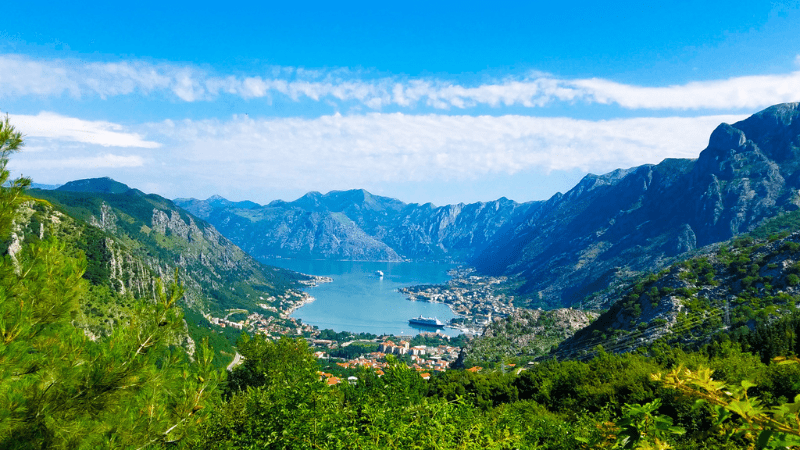
Yet, despite my love for this part of the world, it is an undeniably complicated region. There are thousands of years of history still actively affecting and shaping modern-day politics, culture, society and even borders. Century-old land claims are still aggressively contested to this day. The geopolitical nature of this region is deeply ingrained in modern-day views and is often categorised as “uniquely Balkans.”
LGBTQ+ experience in the Western Balkans
Based on my past experiences, I feel accepted and welcomed as a queer traveller. I feel safe and able to be myself in whatever form that may be. I have never faced verbal harassment or the danger of physical harm. But that’s also the privilege of travelling as a cis female with a cis female partner who is often confused for my sister.
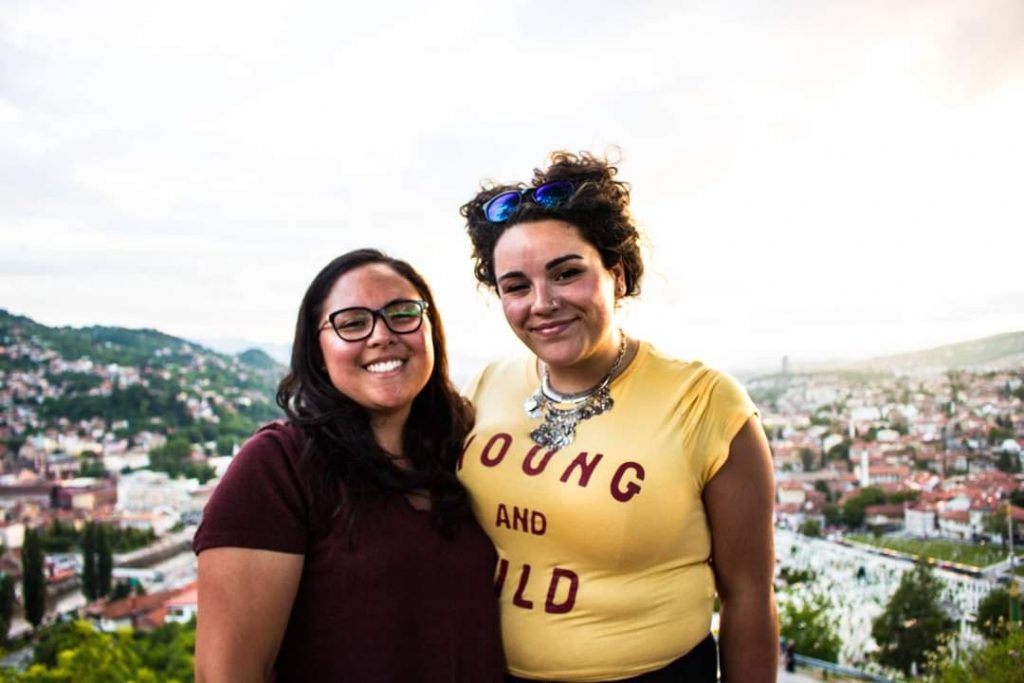
This region is more conservative than some of the LGBTQ+-friendly destinations that I’ve visited in the past. On the surface, it’s easier to deal with conservative practices when you’re passing through a location for a couple of days. But the experience for those living in these areas is very different.
Local members of the LGBTQ+ community have faced widespread discrimination and abuse. Same sex marriage is not recognized in some of these countries. Advocates in the Western Balkans are pushing forward policies that empower and protect the LGBTQ+ community in the face of adversity. Even this year, Belgrade, Serbia’s capital, is due to host Europride 2022 and there has been major backlash from the predominantly Orthodox country.
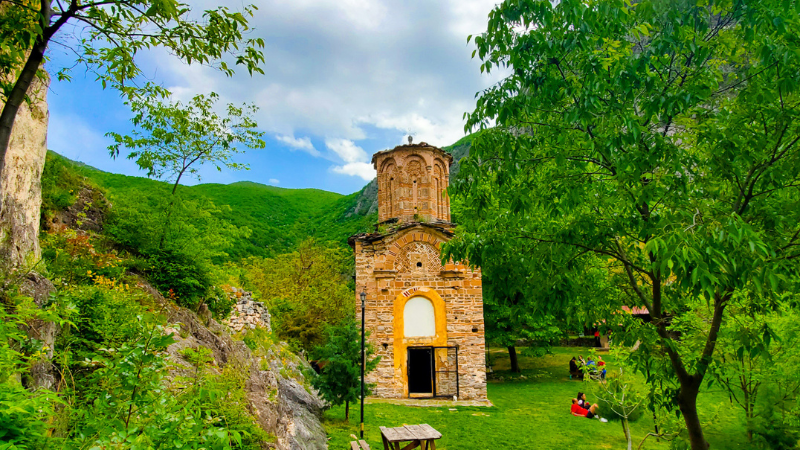
Despite these risks, advocates refuse to stop fighting for inclusive human rights. It doesn’t deter them and there are businesses, safe spaces and organisations cropping up all over the area with the intention of bettering the lives of the LGBTQ+ communities within those countries. As a movement, they focus on advocacy and community spaces, self organising and creating grassroots movements. While these efforts and progressive movers and shakers are mostly seen in major cities and less in smaller villages, their work helps to create a safe space for travellers to come and appreciate the Balkans. And it’s working. On my recent Intrepid trip to four Western Balkan countries, the majority of my group were part of the LGBTQ+ community!
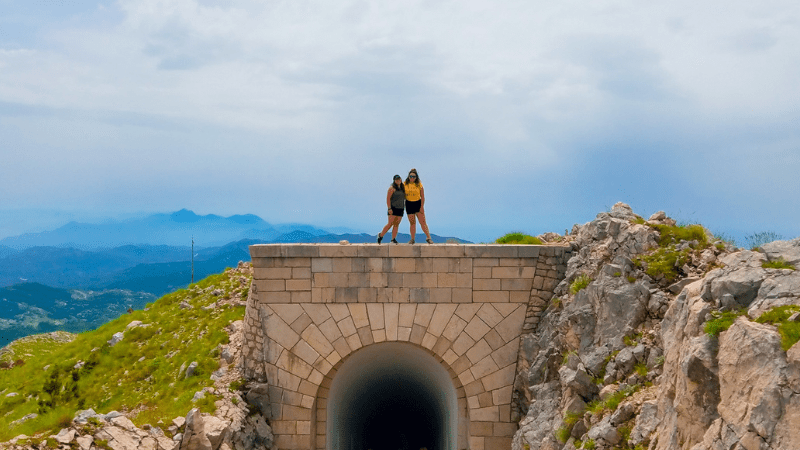
Safety and cultural customs
This region is predominantly conservative and very binary, however in major cities like Zagreb, Budva, Dubrovnik and Prishtinë people are more liberal. It’s suggested that you practise the same care and awareness when it comes to safety that you would when travelling to any new location.
Culturally there are still many closeted members of the LGBTQ+ community in the Western Balkans, especially from the older generation which lends to difficulties when dating or finding a sense of community. PDA among same sex partners is rare and while some do practise this, it does come with a chance of risk.
Social media plays a huge role for the LGBTQ+ movement here and the younger generation is hopeful, well informed, vocal and proactive when it comes to creating LGBTQ+-friendly spaces. If attending any LGBTQ+ events, don’t go with a preconception of queer spaces – come with respect and an open mind.
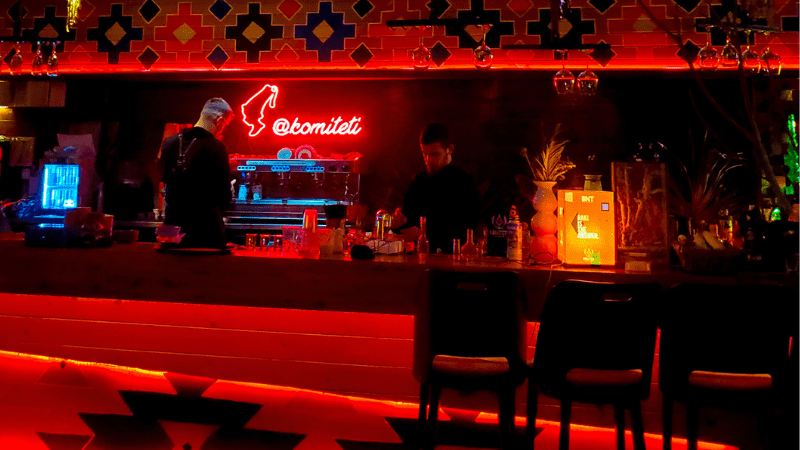
Be mindful that people at these events may not be out to their local communities for fear of discrimination. Avoid exposing people – ask before taking photos to post online or tagging on your socials. Part of our responsibility as LGBTQ+ folk is being empathetic towards the safety of others within our community.
Before you go, read the news or look up online resources to find answers to questions about safety, venues, accessibility and LGBTQ+ events. Reach out to some of the organisations listed by the International Lesbian, Gay, Bisexual, Trans and Intersex Association (ILGA). A quick email could turn into an exchange full of helpful advice, answers and even new friendships!
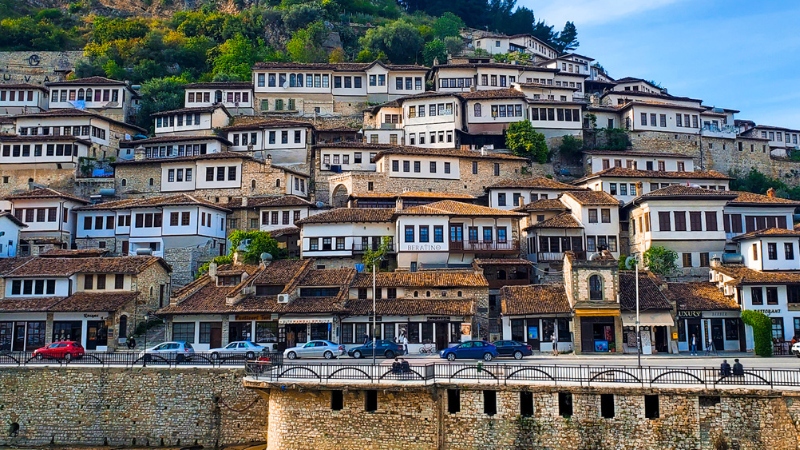
How to support local LGBTQ+ businesses and organisations
While there is still a lot of work to be done, the community is there and advocates are putting in the hard work – and you can absolutely find ways to support them while travelling.
Feminist organisation The Bijat Collective is putting queer parties in Prishtinë on the map, creating a platform for girls and women who want to DJ or produce music. Their events popping up in Kosovo and Albania are dedicated to queer culture and accessibility. They also empower others by offering access to DJ gear and spaces for people to learn, free of charge.
Consider donating to or volunteering at organisations like Streha Center, which supports the emergent needs of the LGBTQ+ youth community. Services include provision of safe housing, accommodation, psycho-social support, group therapy, career counselling, negotiation with families and medical and legal assistance. Their work gives people options so they don’t have to choose between safe shelter and being their truest self.
Finding LGBTQ+ nightlife spots can be challenging but not impossible. Some are unofficial LGBTQ+-friendly locations like Casper Bar in Budva, while others are the first of their kind, openly declaring themselves as LGBTQ+ businesses like Bubbles in Prishtinë and Milk in Dubrovnik.
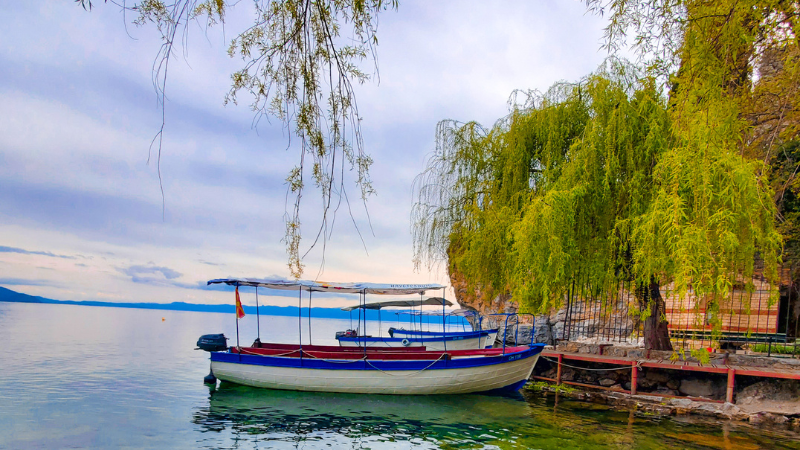
Acknowledgements
I want to thank Amarildo Fecanji, Executive Co-Director at ERA (LGBTI Equal Rights Association for the Western Balkans and Turkey.) ERA is an organisation dedicated to the betterment of the LGBTQ+ community in this region. They have written in their mission statement:
“We are here to create and provide resources, give a united voice to our common challenges, identify opportunities, respond to threats and build a common platform for advancing our rights.”
Their website is a wealth of knowledge and a fantastic resource to gain a better understanding of the LGBTQ+ experience in the Western Balkans.
Amarildo was gracious enough to accept my invitation to chat so I could better educate myself on the local experience for LGBTQ+ people in this area. As travellers it’s important to think beyond the context of our own visits and consider the experiences of people that live in these regions, in order to paint an accurate picture and gain better understanding. Amarildo’s expertise was pivotal in the creation of this article and I value every bit of insight he so kindly offered to me.
I look back fondly on my travels through the Western Balkans with my wife. I remember enriching cultures, late nights, jaw-dropping views, bustling cities, historical must-sees, loud laughter, deep conversations and many meals shared with new friends. This region is waiting to be explored and I implore you to do so!
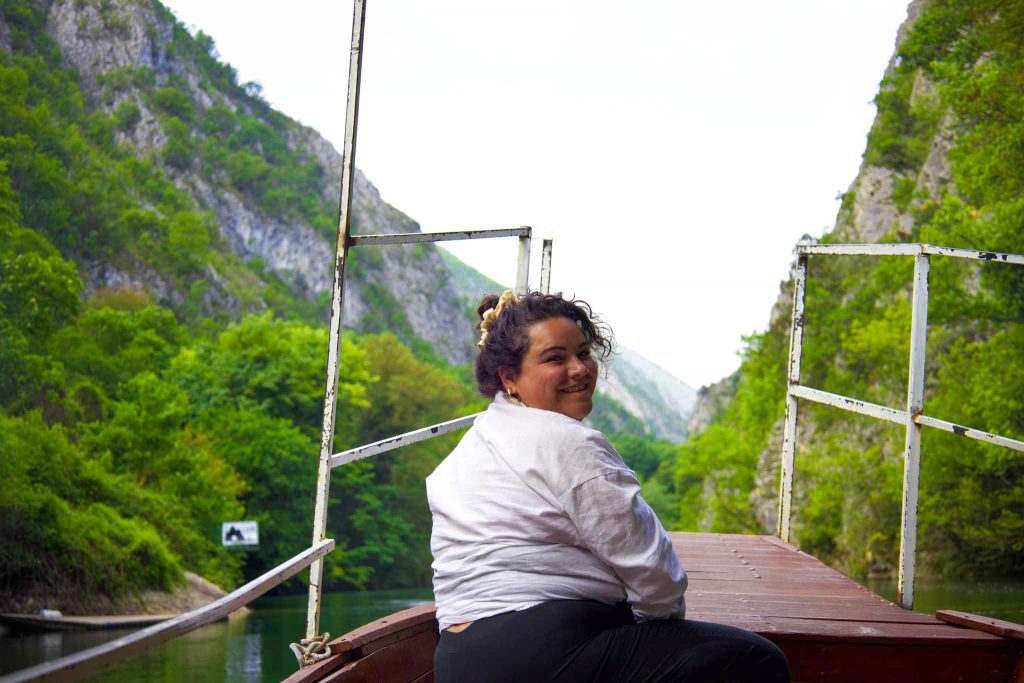
If you want to follow Chantel’s adventures, you can check out her website, voyagingvagabond.com or follow her on Instagram @voyaging_vagabond.

